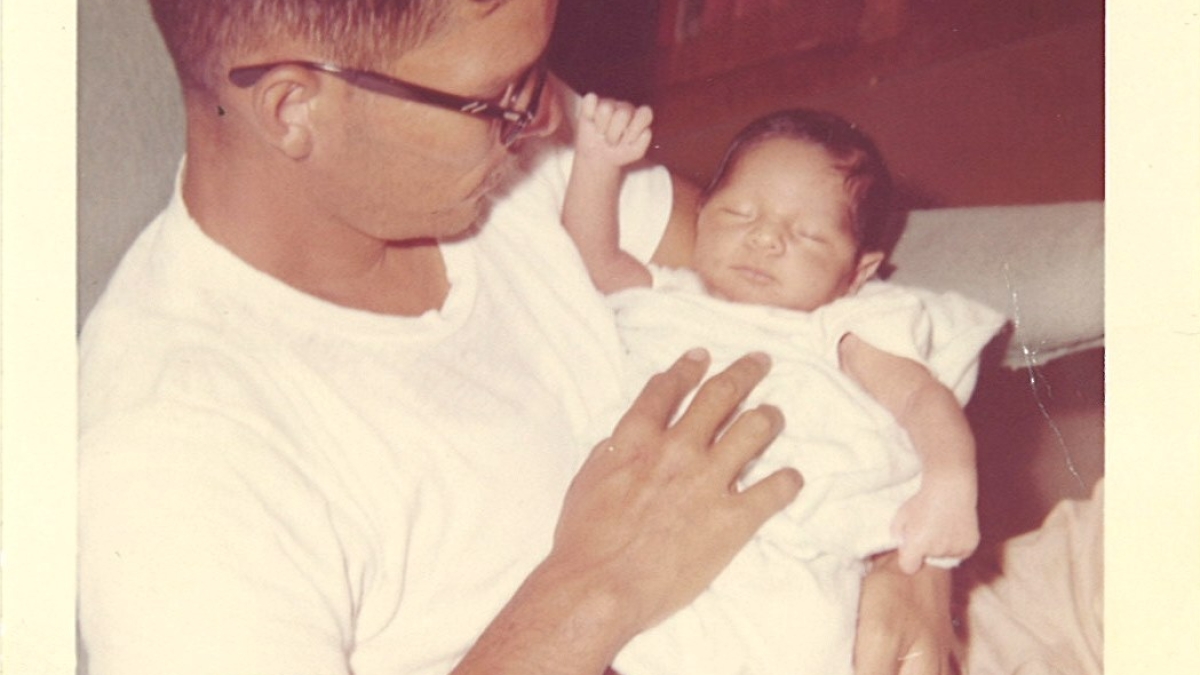ASU vice provost perseveres despite challenges in educational career

Eduardo Pagan grew up in Mesa, Arizona, on the “wrong side of the canal” in an environment where many of his friends entertained visions of sports stardom rather than school, and career aspirations usually consisted of landing a job to cover bills.
Not having any designs on the academic side of life himself, Pagan instead dreamed of playing football for Frank Kush’s team at Sun Devil Stadium as he listened to games on a transistor radio with his father on their home’s front porch.
“I never made it,” said Pagan, Arizona State University vice provost and associate professor in the Office of Academic Excellence and Inclusion. “You have to have talent when it comes to sports.”
After his dreams of playing football for ASU were “horribly dashed,” Pagan stayed connected to the university through his mother, who worked as an administrative assistant at the university. Visiting campus was an opportunity for Pagan to wander ASU, a “mystifying place that was like Oz to me.”
Pagan’s mother always emphasized the value of education in her children’s lives, even if Eduardo was in a “stumbling-through-life” stage during his early years. After attending community college, he transferred to ASU, where he decided to major in business with dreams of a Wall Street future.
“I had no aptitude for accounting, so l dropped out of school,” he said. “I really studied hard and just could not do it.”
Marriage and having a child brought a stiff dose of reality to Pagan’s life, as did a word of advice from a co-worker at a local bank who told him that he needed a college degree if he hoped to progress in his career.
That advice drove Pagan once again to ASU, where he discovered a love of history after his adviser noticed a trend in liberal arts elective classes he had taken in the past.
“I realized that I belonged in the liberal arts. I came back to ASU on probation, and history resonated to my core. It fascinated me. I could not get enough of it, and I poured myself into it. I ended up on the Dean’s List,” he said.
Taking a class with associate professor Lynn Stoner in Latin American history inspired an idea to become a university professor. After being accepted to the University of Arizona, he earned his master’s degree in Latin American history.
“I had a huge sense of inferiority that I couldn’t cut it because of my first two years of college. I felt tremendously embarrassed by that,” he said.
Pagan did cut it, and went on to earn his doctorate through the Rockefeller Foundation’s Project 2000 that allowed him to apply to 10 graduate programs. He made it into Princeton University, earned his doctoral degree in U.S. history and landed his first job at Williams College in Massachusetts. However, frigid east-coast winters proved too much of an “alien environment” for a native desert dweller.
But it was there he began working with first-generation students, a practice he continues to this day at ASU, where he eventually returned after a department chair position became available in what was then the New College of Interdisciplinary Arts and Sciences.
“I see myself in these students. Many of them are balancing family, and many are returning students,” he said. “When I was a student, I found it empowering to hear the stories of my professors. When you feel like an outsider, it’s good to hear someone telling you to stick with it. If I can do it, they can do it.”
That’s why ASU President Michael Crow’s vision of providing access to academically qualified students and being judged not by who the university excludes but who it includes resonates with Pagan.
“The vision of access is a very personal commitment that I have. It’s beyond thrilling to be working at an institution that also has that commitment and working with a president who believes this,” Pagan said.
Pagan’s firsthand experience of having a chance at higher education reflects his drive to see other non-traditional students succeed, as well as inspires him to instill a love of learning in his own children.
“Education is transformative. It is fundamental and it is one of the most important things that you will do in life. It is an investment in yourself,” he said.
It’s also a reason to work hard for the success of first-generation and non-traditional students, and to continue his own lifelong path in teaching and learning the subject he loves.
“When you find a topic that ignites your curiosity, you want to learn more. That’s what I found in history. I’m deeply committed to helping students who may be from a non-traditional background to find their inspiration in learning and realize they can do it,” he said.